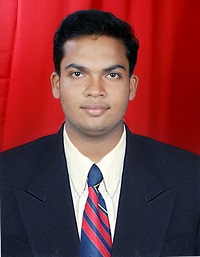
Dr Suryasnata Tripathy
IIIT Surat, India IndiaTitle: A Comprehensive Approach for developing low-cost portable diagnostic devices for clinical decisions
Abstract:
Healthcare is undoubtedly the most fundamental and socially alarming issue in developing countries like India and other economically challenged sections of the global community. Till today, it remains a challenge to provide easily affordable healthcare to the ones who are the most vulnerable. In particular, the unavailability of early and effective diagnostic tools is vexing, which inevitably delays clinical decision-making, leading to morbid consequences. Needless to say, there is an urgent need to address the existing shortcomings and bridge the gap between different sections of society in terms of healthcare and diagnostics. Focusing on diagnostics only, one would agree that the need of the hour is the development of next-generation sensing platforms that are capable of accurate decision making while ensuring cost-effectiveness, easy operation, and large-scale deployment. Thankfully, the recent technological advancements in device-fabrication methods and the improved understanding of nanoscale biomolecular structures and biological principles, have paved the way for the realization of highly complex and sophisticated miniaturized platforms today. Such sensors can cater to a myriad of important biological applications, including detection of DNA hybridization and antibody-antigen interactions, leading to disease diagnosis. As a next step, such sensors have to be converted into portable platforms, for desired clinical diagnosis. Such a translation involves several challenges, such as – miniaturization of the sensor, development of a portable readout and development of a data-analysis and decision-making algorithm. Addressing these challenges, while keeping the cost and the ease-ofuse in mind, is indeed an uphil task. In line with this, in this talk, considering a chemisresistive biosensing platform, a complete sensor-to-prototype pathway is described. As a part of this, the present discussion also addresses several important practical problems, namely – 1. adhesion issues at sensor interfaces, 2. inter-device variability in nanofibers, and 3. non-linearity of resistive sensors, among others. In addition, a couple of innovative sensor-fabrication approaches (such as fabless device development from commercial PCB boards and printable-bioelectronic systems) have been discussed herein, which can be adopted towards reducing the overall system-cost, without compromising with the desired performance. Further, the development of portable bioelectronic readouts has also been discussed here. Also, towards improving the overall robustness of modern diagnostic methods, a smartphone-integrated machine-learning-based decision-making process has been confabulated here. Such a process can potentially replace the conventional calibration techniques, and incorporate the benefits of AI, for rendering smart clinical decisions
Biography:
Dr. Suryasnata Tripathy has completed his Ph.D. in May 2020, in Microelectronics and VLSI, in the Department of Electrical Engineering, at the Indian Institute of Technology Hyderabad, with a thesis titled ‘Nanobiosensors for DNA hybridization and point mutation detection for disease diagnosis and genetic studies’. Dr. Tripathy has an M. Tech degree (2012-14) from the School of Electronics, KIIT University, with a specialization in VLSI Design and Embedded Systems. He has completed his bachelor's degree in technology from the Biju Patnaik University of Technology, Odisha, in 2012, with a specialization in Electronics and Telecommunication Engineering. After the completion of his doctoral degree, he joined IIT Hyderabad as a postdoctoral fellow, where he worked towards the development of a rapid test kit (Approved by CCMB, ICMR for technology transfer) for low-cost COVID-19 diagnosis. Currently, he works as an Assistant Professor in the Department of Electronics and Communication Engineering at the Indian Institute of Information Technology, Surat. His research interests include Nano / Microfabrication techniques, Device modelling, Chemiresistive devices and Bio-FETs, Biosensors for point-of-care diagnosis, Lab-on-a-chip systems, Nano-materials, Electrochemical sensors, Electrowetting, Self-healing materials and Sensors, Wearable and Implantable devices for healthcare, and Printable electronics.
